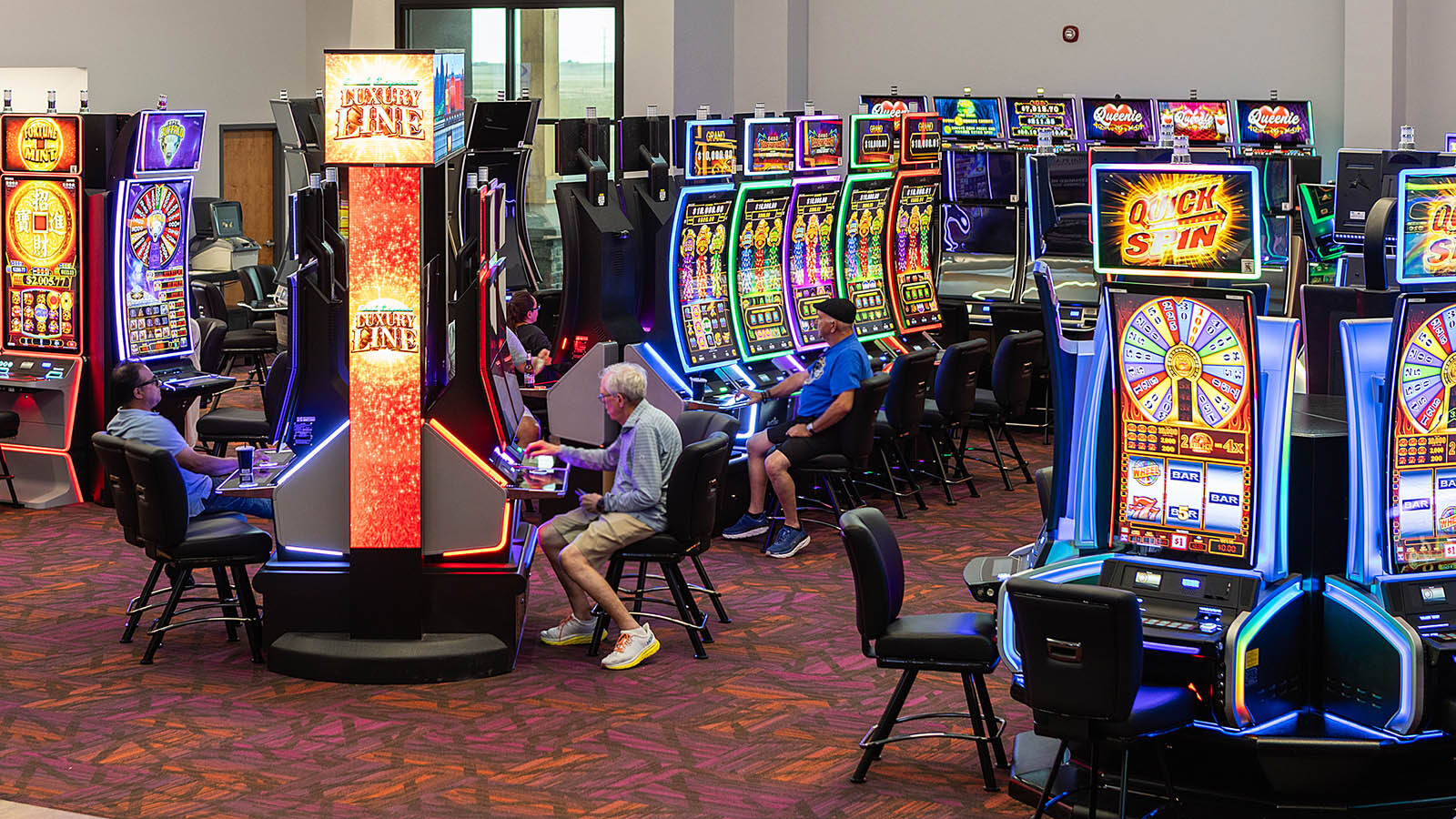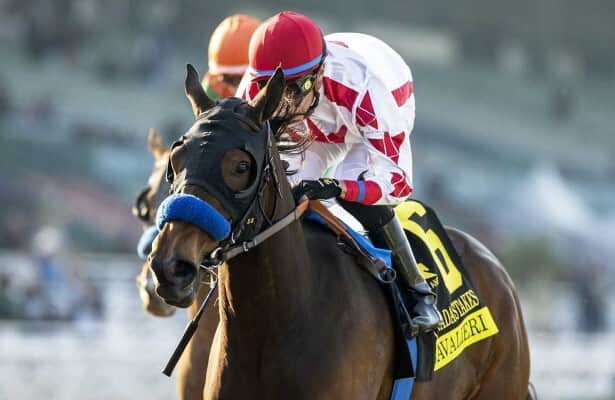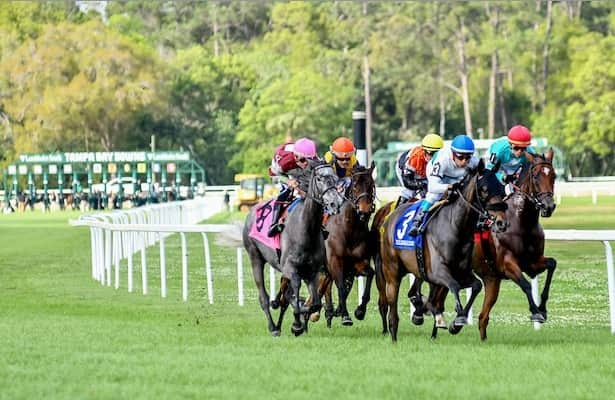Proposal Would Give Wyoming Cities And Towns More Control Of Gaming Machines

Wyoming’s cities and towns could get more say about the gambling that happens in their communities if a bill advanced by the Joint Appropriations Committee on Tuesday passes in the upcoming legislative session.
Titled “Local Approval for Simulcasting,” the bill would allow city and town governments to have a say on whether simulcasting permits for historic horse racing (HHR) machines are allowed in their communities. Now, only county commissions can make those local decisions.
Legal gaming attached to horse racing has exploded in Wyoming in recent years, and now a $2 billion industry.
The proposal still allows county commissioners to nix a municipal government’s approval on a simulcasting permit. Also, the power doesn’t go both ways, as the bill would still allow county commissioners sole approval of permit applications outside city limits.
Of the 45 HHR locations around the state, 42 are located in cities, said Ashley Harpstrieth, executive director of the Wyoming Association of Municipalities.
State Rep. Clark Stith, R-Rock Springs, indicated he doesn’t find this arrangement to be fair and is “just weird.”
“If the machines are in a city, then you have to have the approval of both the city council and the county commissioners,” Stith said. “But if these machines are located in the unincorporated areas of the county outside the city limits, then you just need the county commission. The city has no say.”
Kyle Ridgeway, president of 307 Horse Racing, said this could create a dynamic “that’s ripe for litigation.”
Legislative counsel Tamara Rivale said the language reflected a compromise between cities and counties.
Rep. Tom Walters, R-Casper, referred to the current laws, saying that the legislation would result in a significant change if implemented, as counties have had a universal say on this issue for the last decade.
“By reaching this compromise … the other would be notified, and vice-versa,” he said. “Just to create that open line of communication between the two, knowing that we are certainly upending the apple cart and we want to land on at least one wheel instead of on top.”
This arrangement is in some ways similar to local liquor license laws, which allow cities and towns to put limitations within 5 miles of a municipality.
Most of the members of the committee voted to support the bill.
Bringing Wyoming Horse Racing To The World
The committee also passed a bill allowing Wyoming thoroughbred horse races to comply with federal regulations that set requirements for local races to be broadcast and bet on out-of-state.
The bill would create a 6% tax on the net proceeds from out-of-state revenues, money that would then go into the state’s general fund.
Because of the horse racing industry shrinking nationwide, Walters said that Wyoming has an opportunity to fill a void for this type of gambling in certain areas.
“One of the best ways to promote our horse industry is for more than just the 560,000 people in Wyoming to be able to view what’s going on in the state of Wyoming,” he said. “That’s where we can grow the state, the activity, outside of our borders.”
To simulcast Wyoming races out-of-state, racetracks would have to become compliant with the federal Horseracing Integrity and Safety Act (HISA), which created “a horse racing anti-doping and medication control program” and “racetrack safety program.” For instance, the Kentucky Derby must comply with these same regulations to be eligible to bet on outside the state of Kentucky.
To participate in the program, the state would pay the racetrack’s fees from a pot of other gambling revenues.
Wyoming Gaming Commission Deputy Director Nick Larramendy told the committee it received an estimate that it would roughly cost $160,000 for four operational Wyoming tracks, at a price tag of roughly $40,000 per track.
Wyoming Downs spokesperson Neal Tomlinson disagreed with this estimate, telling the committee it would cost Wyoming Downs nearly $1 million in total fees to be compliant with HISA.
Laurie Urbigkit, a lobbyist for Wyoming Horse Racing LLC, said her organization estimates it would cost $100,000 at its tracks.
Social Gambling And Permit Restrictions Defeated
A bill rejected by the committee would have clarified what constitutes social gambling in Wyoming and increased the minimum age for online sports wagering from 18 to 21, conforming the activity with the state’s other gambling laws.
The bill also clarified what constitutes social gaming in Wyoming as activities of two or more people that have a social relationship with each other outside of the physical gaming.
Walters said the need for this clarification came from some people arguing that billionaire Bill Gates was performing an illegal activity when he came to Wyoming last summer for the groundbreaking of his TerraPower nuclear plant in Kemmerer. While there, he reportedly played poker with some locals.
The Appropriations Committee also voted down a bill that would have capped the number of HHR machines permitted in the state at no less than 25 per location and no more than 2,000 per permit holder statewide.
Leo Wolfson can be reached at leo@cowboystatedaily.com.
Related
Leading Parx jockey Sanchez will serve 7-day suspension
Photo: Jason Moran / Eclipse Sportswire Jockey Mychel Sanchez will serve a seven-day suspension and pay an additional $1,750 in fines
Bill Mott talks about plans for Sovereignty, Just F Y…
Photo: Gulfstream Park / Lauren King Sovereignty, dramatic late-running winner of the Fountain of Youth (G2) March 1, is being pointed
Up-and-coming Cavalieri chases Grade 1 glory in Beholder Mile
Photo: Santa Anita / Benoit Photo Cavalieri and Alpha Bella, who finished one-two in the Grade 3 La Cañada in January at Santa Anita,
4 stakes showcase shipping stars on Tampa Bay undercard
Photo: Gonzalo Anteliz Jr. / Eclipse Sportswire The stars will shine Saturday at Tampa Bay Downs, and not just in the Grade 3 Tampa Ba











